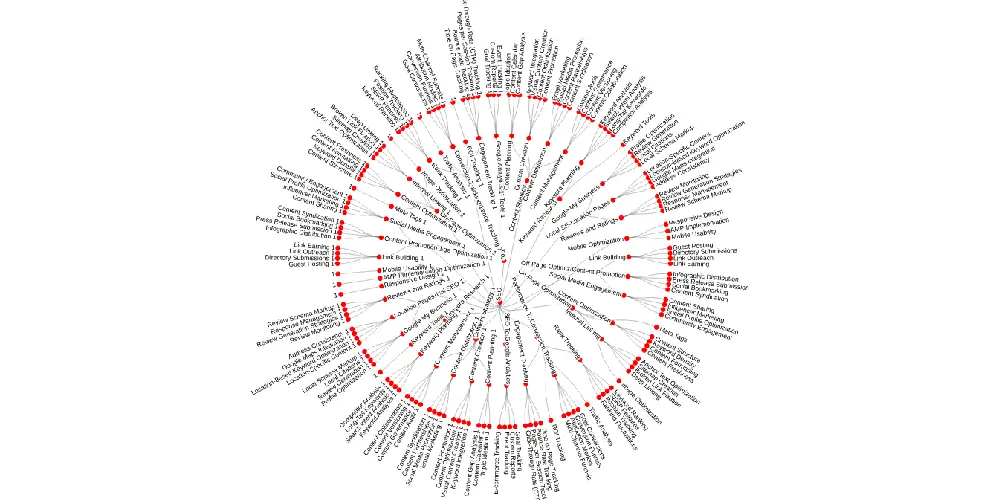Last Updated on September 19, 2025
Search engine optimization (SEO) is no longer just about ranking for keywords—it’s about delivering measurable outcomes. As search algorithms evolve and user behaviors shift, your ability to track the right key performance indicators (KPIs) becomes essential. In 2025, focusing on outdated metrics won’t drive sustainable growth.
This blog unpacks the top SEO KPIs you should track in 2025, giving you the metrics that matter for traffic growth, engagement, conversion, and overall digital visibility.
1. Organic Traffic & Keyword Rankings
Organic traffic remains the heartbeat of SEO performance. It refers to the visitors landing on your website via unpaid search results. Google Analytics 4 (GA4) provides detailed tracking, enabling you to analyze sources, pages, and segments (e.g., new vs returning visitors).
Keyword rankings also play a critical role in visibility. Use tools like Ahrefs, SEMrush, and Google Search Console to monitor how your core keywords perform.
Key Metrics to Track:
- Total organic sessions (monthly/quarterly trend)
- Branded vs non-branded keyword performance
- Top 10 keyword movement
- Segment by high-intent keyword clusters
2. Click-Through Rate (CTR) & SERP Features
CTR measures the percentage of users who click on your link after seeing it in the search results. It’s a strong signal of relevance and snippet optimization.
Improving CTR often involves crafting compelling titles and meta descriptions, using structured data, and targeting SERP features like featured snippets.
Key Metrics to Track:
- CTR per page and keyword
- Featured snippet visibility
- Impressions vs clicks in GSC
- Rich result and schema markup effectiveness
3. Core Web Vitals & Page Speed
In 2025, Google continues prioritizing user experience with Core Web Vitals (CWV), including:
- Largest Contentful Paint (LCP): Measures load time
- Interaction to Next Paint (INP): Measures responsiveness
- Cumulative Layout Shift (CLS): Measures visual stability
Use Google PageSpeed Insights and Lighthouse to track and optimize performance.
Key Metrics to Track:
- LCP ≤ 2.5s, INP < 200ms, CLS < 0.1
- Mobile vs desktop speed
- Page size and request counts
- CDN and caching efficiency
4. User Engagement & Dwell Time
User engagement shows how well your content satisfies intent. Google measures dwell time and bounce rate to assess content usefulness.
Improving content readability, structure, and multimedia usage can increase time on site and reduce bounce.
Key Metrics to Track:
- Bounce rate and time on page
- Pages per session
- Scroll depth tracking
- Exit page trends
5. Conversion Rate & ROI
All SEO efforts must lead to a business outcome. Conversion Rate Optimization (CRO) helps connect traffic with revenue.
Track the complete journey from entry point to goal completion, setting up events in GA4 and segmenting high-performing pages.
Key Metrics to Track:
- Conversion rate (by channel/page)
- Goal completions (forms, downloads, purchases)
- Cost per acquisition (CPA)
- Return on investment (ROI)
6. Backlink Profile & Domain Authority
A strong backlink profile remains one of the most impactful SEO ranking signals. Focus on acquiring links from high-domain-authority sites within your niche. As per backlinko study – #1 result in Google has an average of 3.8x more backlinks than positions #2-#10
Use Ahref or Moz to audit link quality and track growth.
Key Metrics to Track:
Toxic links and disavow status
Number of referring domains
Authority score of backlinks
Anchor text distribution
7. Hyperlocal & Mobile SEO Metrics
With the rise of “near me” searches and mobile-first indexing, local and mobile SEO matter more than ever.
Use Google Business Profile insights and test your mobile site performance to ensure a seamless user experience.
Key Metrics to Track:
- Google My Business(GMB) clicks, calls, directions
- Local pack rankings
- Mobile speed scores
- NAP (name, address, phone) consistency
8. AI-Driven Metrics: AEO & Generative SEO
2025 marks the rise of AI-first search. Answer Engine Optimization (AEO) and Generative Engine Optimization (GEO) focus on getting featured in AI-generated summaries.
To win in AI results, optimize for entities, schema markup, and conversational queries.
Key Metrics to Track:
- Schema adoption across pages
- AI snippet appearance (e.g., ChatGPT, Perplexity)
- Q&A content structure
- Branded vs zero-click queries
Conclusion & KPI Dashboard
SEO in 2025 is more data-driven and user-focused than ever. Tracking the right KPIs not only improves visibility but also ensures your content drives tangible business outcomes.
Build a live KPI dashboard that monitors these metrics monthly and quarterly. Align it with your marketing funnel to measure what truly matters.
Pro Tip: You can use this free Keyword Analysis Report template and begin tracking today.
Stay ahead of the curve, and remember—what gets measured, gets managed.
- Top AI Marketing Tools in 2026 - December 2, 2025
- Best SEO Content Optimization Tools - November 13, 2025
- People Also Search For (PASF): The Complete 2025 Guide to Smarter SEO Optimization - November 11, 2025




